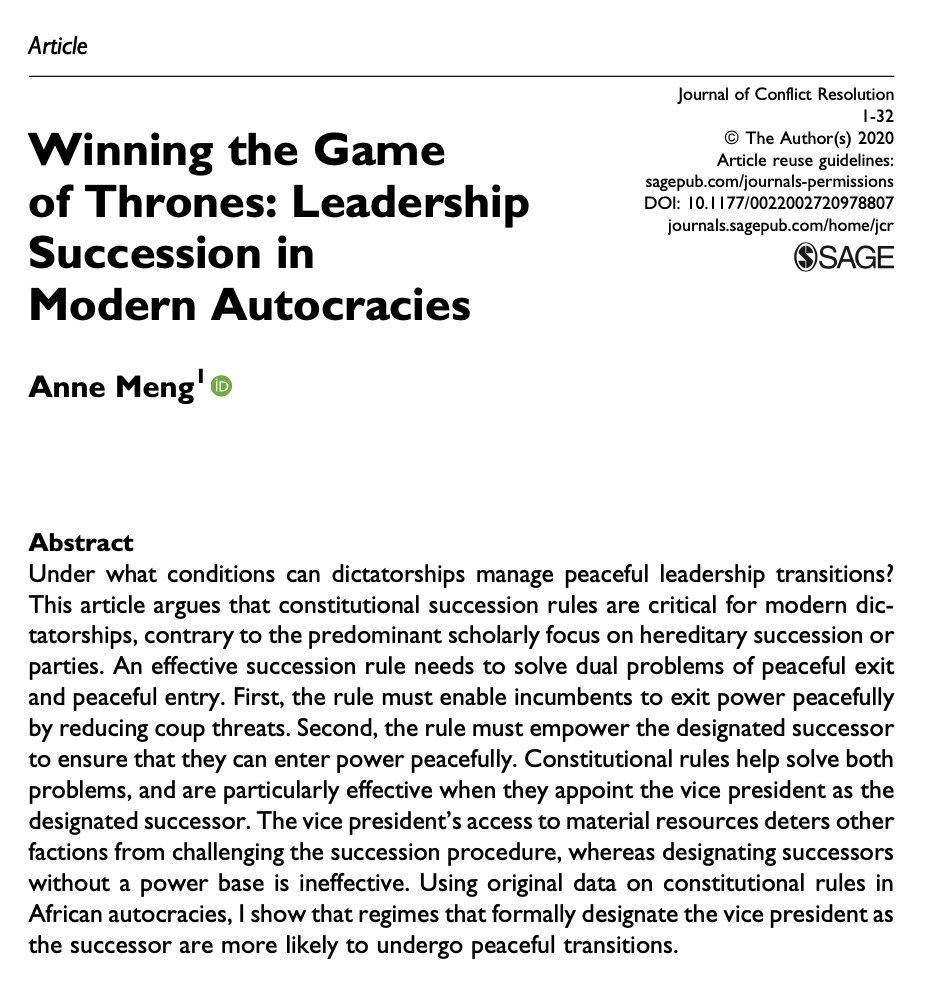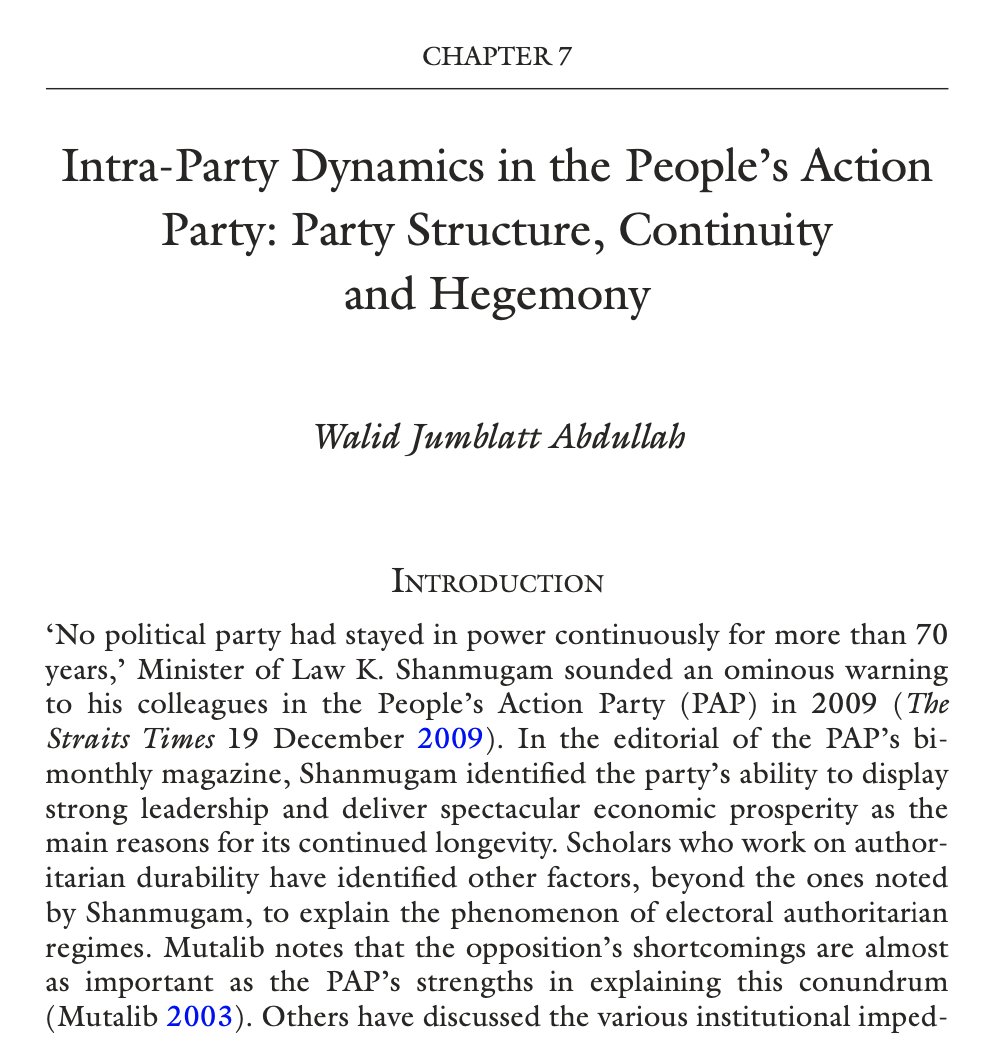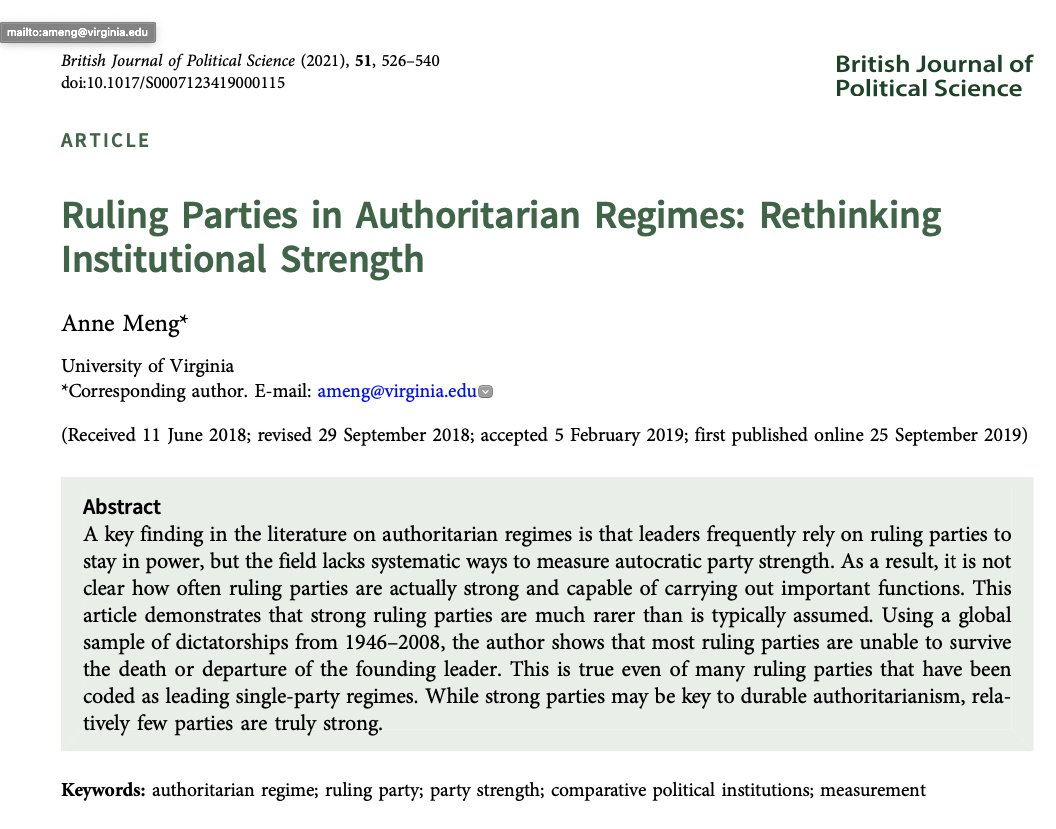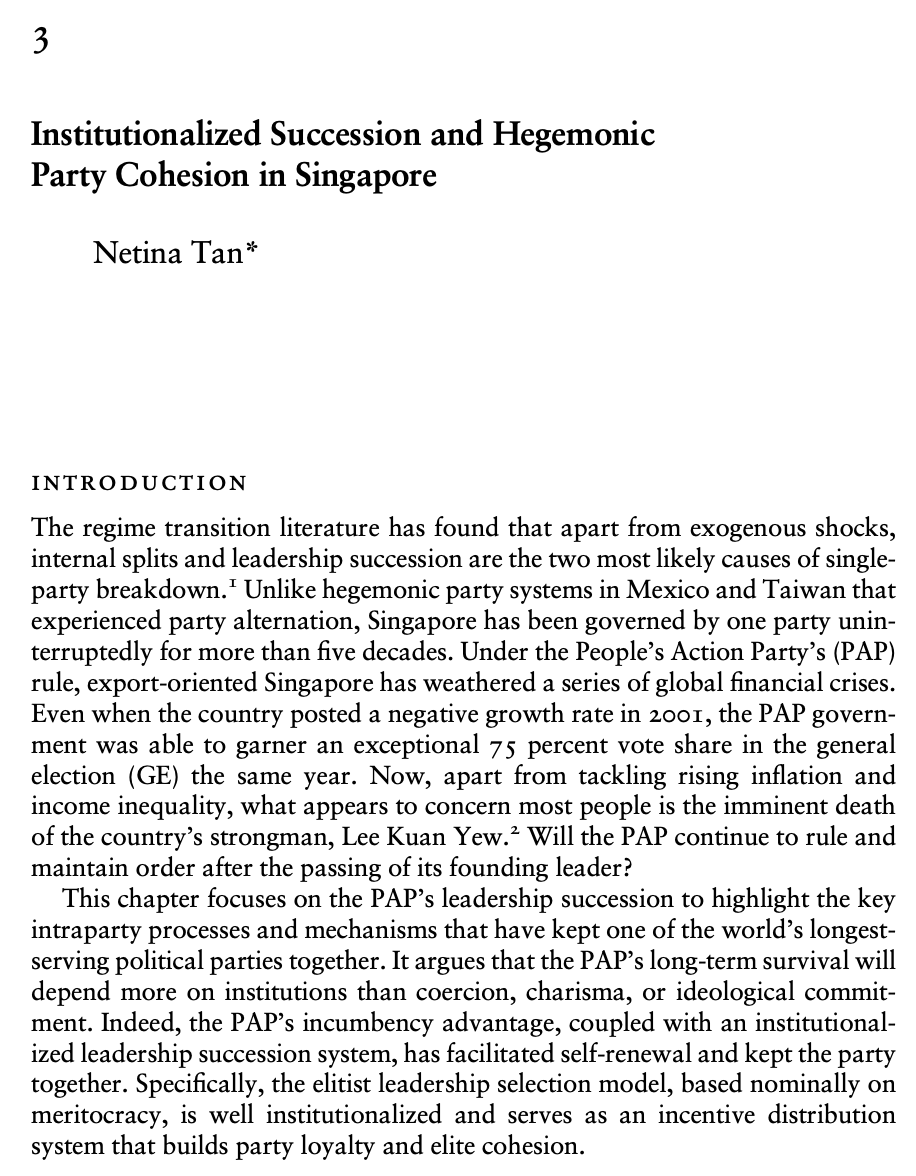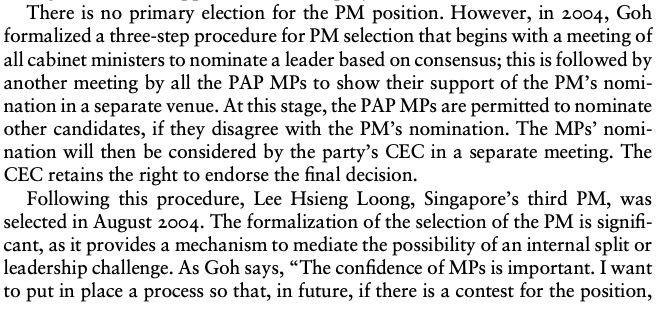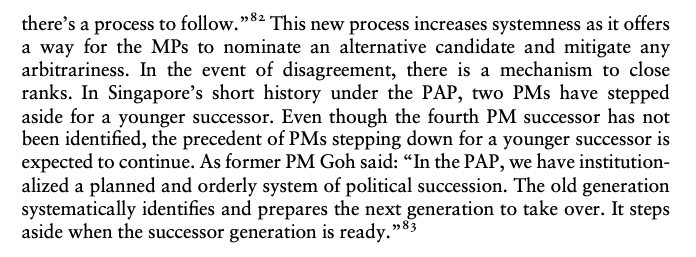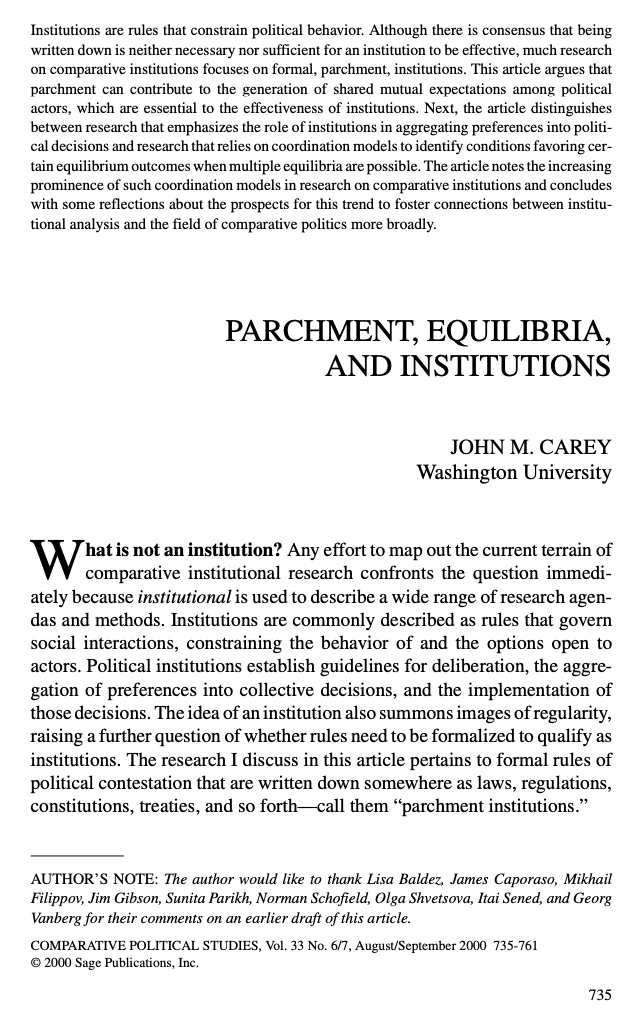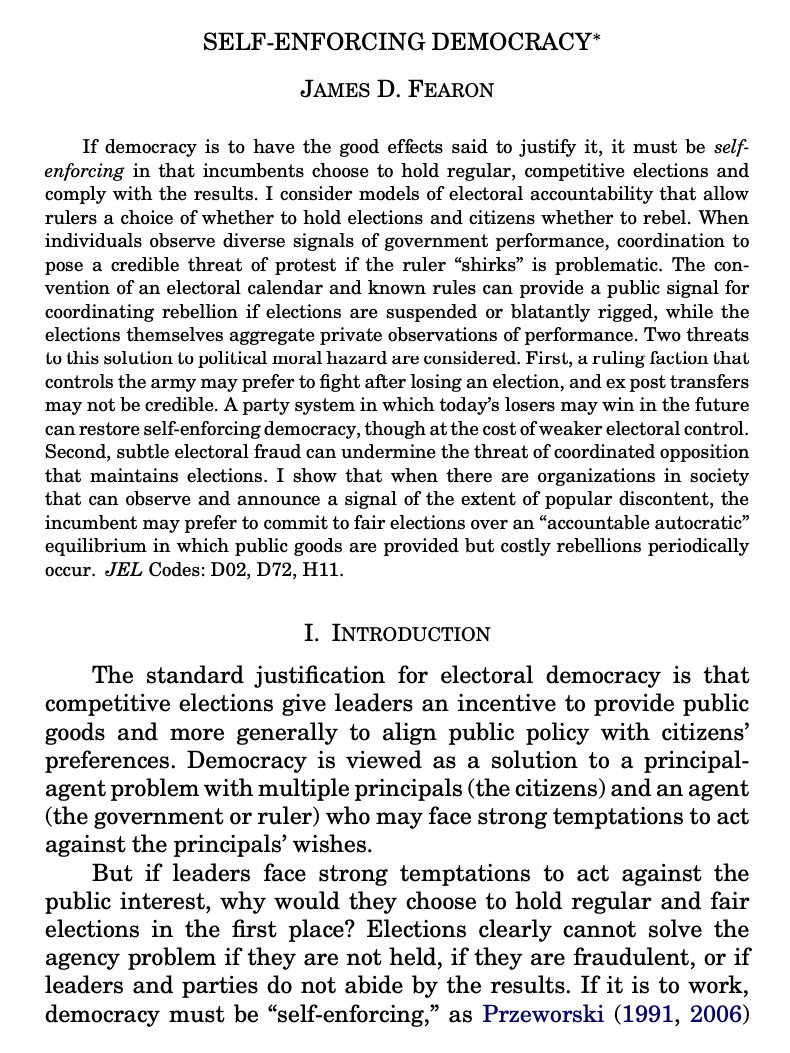@annemeng_ (2020) tells us that peaceful transfers of power in autocracies (and therefore autocratic longevity) are most likely when there are rules to anoint a clear successor. Specifically, she focuses on "constitutional rules" that clearly designate a formal successor.
In short, clear rules designate clear successor, means peaceful transfer of power, means autocratic longevity. In SG, there are no such clear rules. What we have, however, is a strong institutionalized ruling party, which @walidjabdullah (2019) has written extensively about.
And as @annemeng_ (2021) reminds us, strong institutionalized ruling parties can survive the death of the founding leader because they have "established rules, procedures and hierarchies that shape the distribution of power and resources among elites."
So perhaps the PAP has clear "party rules" for succession even if we don& #39;t have "constitutional rules" for such a purpose? Indeed Netina Tan (2015) tells us that the PAP has "an institutionalized succession system" which "facilitated self-renewal and kept the party together."
She reminds us how Goh Chok Tong, the previous PM, instituted a 3-step procedure for selecting the next PM. (1) Cabinet nominate leader by consensus, (2) PAP MPs show support or nominate alternative leader, (3) PAP CEC has veto power.
This procedure was most important for Goh Chok Tong, as Netina Tan notes, because he declared "In the PAP, we have institutionalized a planned and orderly system of political succession." in the PAP& #39;s party magazine, Petir, no less.
But there are several problems with GCT& #39;s 3-step procedure. One problem is that it is not "written down" and formalized. And as Carey (2000) reminds us, formal rules written on paper generates mutual expectations that "are worth more than the paper on which they are written."
Another problem with GCT& #39;s 3-step procedure is that it is not self-enforcing: no one is punished if they violate the 3-step procedure. And as Fearon (2011) and many others tell us, institutions must "bite" and self-interested actors must behave as if the institution can "bite".
As it stands, it seems that either (a) everyone has forgotten about GCT& #39;s 3-step procedure, (b) those who remember the procedure don& #39;t believe it is in their self-interest to recall it now, or (c) it is even difficult to get to step 1 of cabinet consensus in the first place.
Whatever it may be, in SG& #39;s current situation, everyone (meaning the political elites) are behaving as if there are zero institutions that structure the leadership succession process. This means we are truly in the realm of the Game of Thrones.
And in such a situation, even though politics may appear relatively peaceful from the outside, things might be quite problematic within the PAP, to say the least. /End Thread.

 Read on Twitter
Read on Twitter Yesterday, Singapore& #39;s Deputy Prime Minister Heng Swee Keat, the designated "PM in Waiting" to take over current PM Lee Hsien Loong, made the decision to "step aside" in favour of someone younger. How can poli sci research help us make sense of it? https://bit.ly/3d31S81&q..." title="https://abs.twimg.com/emoji/v2/... draggable="false" alt="🧵" title="Thread" aria-label="Emoji: Thread">Yesterday, Singapore& #39;s Deputy Prime Minister Heng Swee Keat, the designated "PM in Waiting" to take over current PM Lee Hsien Loong, made the decision to "step aside" in favour of someone younger. How can poli sci research help us make sense of it? https://bit.ly/3d31S81&q..." class="img-responsive" style="max-width:100%;"/>
Yesterday, Singapore& #39;s Deputy Prime Minister Heng Swee Keat, the designated "PM in Waiting" to take over current PM Lee Hsien Loong, made the decision to "step aside" in favour of someone younger. How can poli sci research help us make sense of it? https://bit.ly/3d31S81&q..." title="https://abs.twimg.com/emoji/v2/... draggable="false" alt="🧵" title="Thread" aria-label="Emoji: Thread">Yesterday, Singapore& #39;s Deputy Prime Minister Heng Swee Keat, the designated "PM in Waiting" to take over current PM Lee Hsien Loong, made the decision to "step aside" in favour of someone younger. How can poli sci research help us make sense of it? https://bit.ly/3d31S81&q..." class="img-responsive" style="max-width:100%;"/>
